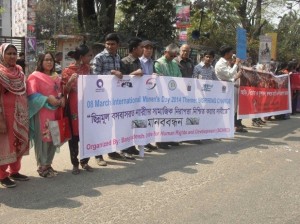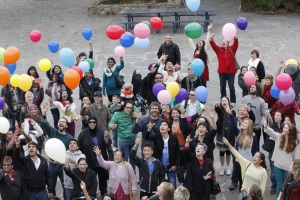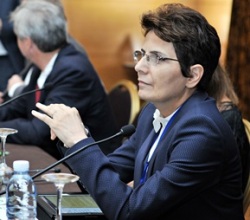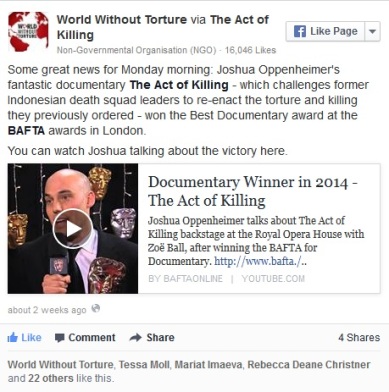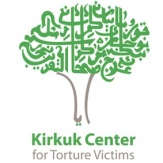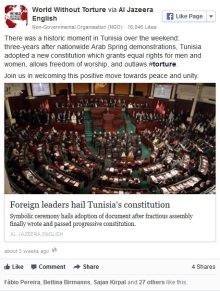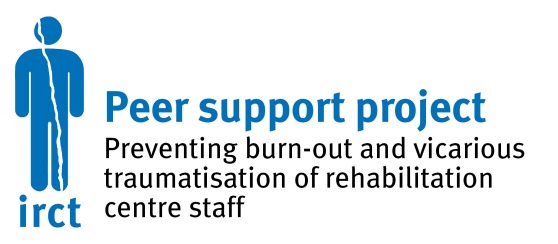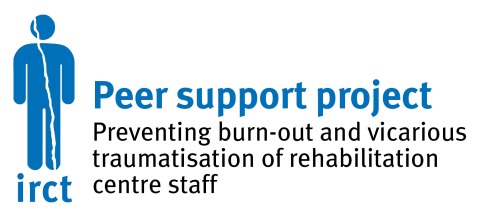Posts Tagged care-for-caregivers
On the Forefront: Restoring justice in Bangladesh
Posted by World Without Torture in On the Forefront, Pacific, Prevention, Rehabilitation on 26/03/2014

Even following the ratification of the UN Convention Against Torture in 1998, alarming estimates predict as many as 220,000 people are tortured in Bangladesh every year.
It seems implausible but, according to the Asian Human Rights Commission, it is something quite possible while torture in Bangladesh is not punishable as a crime, due to domestic laws which do not meet the definition of torture according to the Convention Against Torture.
The result is a society with little faith in the judicial system when it comes to reparation for the crimes of torture – a state-of-mind which has bred mass impunity due to widespread beliefs that claims of torture will simply not be taken seriously.
Tackling this impunity is the Bangladesh Centre for Human Rights and Development (BCHRD) which, since 1994, has stayed true to its one objective: to provide immediate assistance and rehabilitation for victims of trauma, particularly children and women.
According to the Asian Human Rights Commission, torture is routinely practiced across the 629 police stations of Bangladesh as investigators see torture as an acceptable and effective means of gathering evidence.
Countering this, the BCHRD works closely with victims of torture in detention to report their stories, to collect their data, and to reintegrate them into society. Approaches to rehabilitation are both administered after the torture and preventatively to stop the cycle of torture in the country.
The main multidisciplinary approach of BCHRD is one known as the integrated rehabilitation approach (IRA) which involves professionals including physicians, physiotherapists, psychologists, counsellors, lawyers and social workers who met frequently to form a united workforce which can target and assist victims of torture in every field necessary.
The benefit of this approach is not only that torture survivors are assisted, but it promotes cross-training and sharing of information among Bangladesh’s most important groups in the protection of human rights.
To find out more about BCHRD, please click this link.
Creating a world without torture: February in review
Posted by World Without Torture in Advocacy and Influencing Policy, Asia, Europe, From our members, Justice, Middle East North Africa, News & Clippings, Pacific, Prevention, Rehabilitation on 28/02/2014
Despite being the shortest month of our calendar, February has been packed with important news stories, statements and developments across the anti-torture movement.
We summarise some of our most popular blogs, social media content and news releases below. Simply click the relevant links and pictures to read the full stories.
10 questions and answers about torture rehabilitation
Ever wondered what can be achieved through rehabilitation? Ever wanted to know exactly what can be done to help victims of torture overcome their past? Or have you simply questioned how many centres across the globe offer torture rehabilitation services?
This month we collected the top ten questions asked by our readers about anti-torture work and answered them with links to our work. Just click the picture or this link to read more.
IRCT President awarded Council of Europe prize
Another popular story this month came from the IRCT whose President, Suzanne Jabbour, has been awarded the prestigious North-South Prize from the Council of Europe in recognition of her lifelong commitment to preventing torture.
The award, which will be presented this Spring in Lisbon, Portugal, has a long list of famous previous winners including Kofi Annan and Bob Geldof.
Suzanne is overjoyed with her victory and we want to thank everyone who joined us in congratulating Suzanne on this award. Read the full story here.
‘Wheel of Torture’ shows more must be done to stop torture in the Philippines
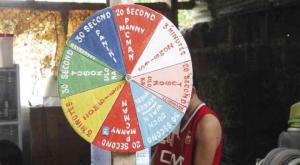
Detainees can be subjected to torture such as “20 seconds Manny Pacman” which means 20 seconds of nonstop punches. (Courtesy of the Commission on Human Rights)
A prison guard takes a detainee from his or her cell, escorts them to a roulette-style wheel listing different methods of torture, and spins the wheel to determine just how much pain should be inflicted on the prisoner.
This ‘Wheel of Torture’, which uses torture as a game, came to light in the world media this month following an inspection of prisons in the Philippines and shocked human rights groups worldwide.
The practice not only showed us how torture is still being reinvented and adapted in sadistic ways, but also showed just how little is being done in the Philippines to stop torture. You can read our full blog on this, and the statement from human rights defenders in the country, by clicking this link.
‘Act of Killing’ BAFTA victory is important for anti-torture movement
A story we shared on Facebook this month garnered much attention – the vivid, hard-hitting documentary ‘The Act of Killing’ achieved must deserved recognition from the British Academy of Film, Television and Arts (BAFTA) this month, receiving the award for Best Documentary at the latest awards ceremony.
Click our status below to watch an interview with the filmmaker Joshua Oppenheimer following the award.
The challenges facing torture rehabilitation in northern Iraq
We caught up with IRCT member the Kirkuk Center for Torture Victims in Iraq this month to see what they are doing to help survivors of torture in the region.
The newest member of the IRCT movement, the Kirkuk Centre have extensive links across the north of the country to aid victims of torture from all backgrounds, from those affected by the war in Iraq, to the recent influx of Syrian refugees in the region.
It comes as part of our ‘On the Forefront’ series, which you can see all the entries for by clicking this link.
Tunisia passes new constitution
Incredible news from Tunisia this month, who passed a new constitution promoting equal rights for women, freedom of religious expression, and freedom from torture – all ratified just three years after revolution.
We joined world leaders in congratulating Tunisia on this move which will hopefully push other contries to follow the lead.
Click here or the picture for more information.
Change in Bahrain is needed now, not in another three years
However in Bahrain, which also experienced uprisings against the government three years ago, the situation of ill-treatment of protestors and limits to freedom of expression has not changed.
Protests continue on a daily basis, and the three-year anniversary since the beginning of the protests was tragically marked itself by further protests and excessive crackdowns from the authorities.
Bahrain needs to change now. It simply cannot wait any longer. Read the full story by clicking the picture or clicking this link.
For further information from World Without Torture, do not forget to ‘like’ us on Facebook and follow us on Twitter. Click here to visit our Facebook page, and here to visit our Twitter feed.
Stress and non-clinical staff: SPIRASI director reflects on lessons learned in care for caregivers
Posted by World Without Torture in Europe, From our members, Rehabilitation on 26/11/2013
Editor’s Note: This is the final blog in a regular series from centres involved in the Peer Support project (more fully described in our introduction blog here). See other previous posts in this series here.
I was discussing our work recently with the CEO of a company who are redesigning our website, and he exclaimed: “I don’t know how you deal with all of that on daily basis. I just don’t know”.
As of this month I have been working with SPIRASI for ten years, and I can’t count how many times I have been asked this question, both professionally and personally. It’s a question that I know others who work with asylum seekers grapple with; but it’s also something that over my ten years of being at SPIRASI we have tried, sometimes with limited success, to deal with.
It’s an important distinction, in this work with victims of torture, for me to state that I’m not a clinician. I’m neither a psychologist nor doctor, although I have been asked a good few times if I’m a priest given that we’ve been founded by a religious order called the Spiritans (I’m not). Being a non-clinician does mean that I don’t meet with clients to conduct assessments or therapy sessions. Although I do interact with some of the clients of our centre, it’s often unscheduled and normally from a distance. This distinction in our work is important because it can determine not only the impact of the work, but how the response to that impact is often formulated and how readily you can identify the impact.
I think it’s only natural that on the scale of need in the centre for support that I and other administrative staff are often the lowest on that scale – especially when you are aware of the depth of suffering and despair of our clients and what confronts our clinical team. Before the Peer Support Project, we only really thought of the need to support staff in terms of that front line clinical team and along traditional lines, such as individual supervision for therapists. There is an undeniable and demonstrable need to ensure that therapists, social workers and physicians receive regular supervision and support, but the Peer Support Project has shifted this assumption in our organisation. We now accept the need to provide support to those on that lower and less visible end of the spectrum.
Non-clinical team members are impacted by the work. This impact is often through high levels of stress and some vicarious traumatisation and these needs cannot be ignored by rehabilitation centres. Through the use of the Stress Management Cycle (SMC) that was shared by the Antares Foundation, we now have the ability to approach the stress related to the work in a much more systematic and considered way.
As a result of working daily with victims of torture, it becomes a challenge to see beyond the individual needs of victims and focus on self, team and organisation. The SMC gives us the tools to look at what needs to be in place on a policy level and to ensure that through the time of an employee/intern/volunteer within our organisation, from selection and induction through to post employment support, that we have appropriate mechanisms to support staff, both clinical and non-clinical.
The work is stressful and difficult, and I now readily admit to people like the CEO of our web-design company that it is. But I also make the point to him that it is one of the most rewarding and inspiring jobs that I could have ever wished for and that it’s an honour to work for victims of torture.
By Greg Straton, Director of SPIRASI, Ireland
Progress at Hemayat: new systems, structures and offices in Austria
Posted by World Without Torture in Europe, Rehabilitation, Sharing Knowledge - Project Work on 18/07/2013
Editor’s Note: This is the seventh in a regular series from centres involved in the Peer Support project (more fully described in our earlier blog here). See other previous posts in this series here, here, here, here, here and here.
Shortly before the start of our participation in the PEER SUPPORT Project, Hemayat moved to new premises because our old office had become too small. Since the old centre did not have enough therapy rooms, many of our therapists had to work in their own offices. This solution enabled us to still treat more patients. On the other hand, this system led to few opportunities to share experiences and lend mutual support between the therapists. The PEER SUPPORT Project showed us that there is still a lot of work to do to enhance the wellbeing of our staff. In our new space we now do have possibilities to do so.
Since our last blog, some things have changed for the better, as our new organisational structure is now partially in place. The therapists and the translators elected members of their groups to represent their needs and wishes within the organisation. Regular meetings between the managing staff and the representatives of these groups are held to discuss topics concerning the running of the organisation as well as the wellbeing of the staff.
We also started to evaluate our written staff policies: what is in place? What is missing? What needs enhancing? The information we received during the PEER SUPPORT project training in Barcelona helped us to find some of our blind spots concerning the support of our staff and its wellbeing. The therapists decided it would be good for them to have the opportunity to meet outside the office in an informal way. So they now installed a jour-fix and meet in a restaurant. The new intervision system is also about to be installed. Since a lot of the staff will take holiday leaves during the summer, we decided to start in September with regular intervision groups. The response of the staff toward the intervision meetings was favourable – many therapists feel it could help them and their work by sharing their experiences with each other.
In our last blog post, we had mentioned that money is always a big issue. We have very long waiting lists, which puts a lot of pressure on our shoulders. We want to provide the much needed help as quickly as possible. The downside to our new premises is that they are more costly than the old ones. We did not want this to affect the extent of therapy sessions we offer.
We therefore hosted a charity event on 21st of June. A lot of artists and well-known persons offered their support and we received so many donations that we can even increase our therapy hours!
By Nora Ramirez Castillo, psychologist & assistant manager Hemayat.
How do we unload? Questions from treating victims of torture in Romania
Posted by World Without Torture in Europe, From our members, Rehabilitation on 13/06/2013
Editor’s Note: This is the sixth in a regular series from centres involved in the Peer Support project (more fully described in our earlier blog here). See other previous posts in this series here, here, here, here and here.
“Our mission is to help, and when we feel that someone is trying to help us, this creates a good feeling and gives us wings for go on our mission”
In everyday life, working with victims of torture generates stressful moments. Why? Because we are always confronted with persons whose needs are many and varied, and our ability to cover their needs are often very limited. Our mission is to help, but we cannot always do so. This spirit of bitterness depletes us little by little. We remain marked by a sad story of life, a crippled body and a suffering soul.
How do we unload our soul? How do we free ourselves from what we have gained and what ails us?
All these questions arose in my mind many years ago. Ever since, I always tried to find new answers, new solutions. I started my work for victims of torture 13 years ago as director of MRCT Craiova Romania. Eight-hundred twenty-nine patients are registered at our centre. Every year we regularly assist 140 people with approximately 660 medical consultations and 2,400 physiotherapy sessions. The services are provided by the organization staff consisting of 11 persons. For information on who we are and what we do you can to our website: www.icarmed.ro.
One of the major problems I faced during all these years was to retain staff considering that the financial resources for salaries were always poor. In these circumstances, I think it is important for employees to have a job that comes with love, and to be part of a team in which everyone is united with the other for better and for the worse. This is a difficult goal to achieve, but great things are an accumulation of little things, and I think that every step is important.
One step was to devise a questionnaire in order to try to know more about the mood of the team — hardships in facing problems that grind desires and aspirations. For me this questionnaire was and is useful. I chose this way of communication because often, when we stand all together, with all eyes glued to us when we speak, we find it difficult to express what we think, what we are upset about and what we want. The questionnaire is outlined on the bottom of this blogpost, and might be interesting for debate to improve it or maybe as a tool for partners in Peer Support Project.
Another important step is our participation to the Peer Support project, which is driven by a valuable team of project managers and trainers from whom we acquire knowledge. We learned best practices and applied them in our daily work to improve the well-being of the organisation.
We learned when to use the clinical intervision method, which helps us find better solutions to resolving the difficult cases. Since February, we have had monthly clinical intervision sessions.
After the Barcelona training, we realized that is very important to have a defined strategy for stress management in our organisation.
Another positive aspect of the Peer Support project is that we feel good to see how the three leading organisations (IRCT, Antares, bzfo) made their experience and expertise available in support of the six newly participating organisations to acquire similar skills. It simply feels so good when you see that someone wants to do something for you!
By Simona Smarandache, Director of MRCT Craiova Romania
QUESTIONNAIRE
- NAME ……………………………………………………
- DATE OF EMPLOYMENT………………………………………………………
- DATE OF COMPLETION…………………………………………………..
- FUNCTION…………………………………………………………………
- WORK PROGRAMME ……………………………………………………….
- Do you know your responsibilities according to your job description? Institutional Code of Conduct? Organizational Code of Conduct?
- Describe the activity which you perform in the centre:
- What problems do you have regarding your activity, who/ what generates them, what solution do you think there are for resolving them?
- What dissatisfactions do you have?
- What are your expectations?
- Do you want to continue your activity within the centre? If YES, for how long? For a short/ medium long period of time? What are your aspirations?
- How do you see your activity in the future?
- What does MRCT Craiova represents for you?
- Do you have disagreements with your colleagues? But complaints about them?
- Do you have disagreements with your superiors? But complaints about them?
- Do you have disagreements with the director of the centre? But complaints about him/her?
- Are you satisfied with the working conditions, with the working environment in the centre? What are your suggestions and wishes in this respect?
- Do you have family problems? Are these problems related to your work place?
- Do you have any health problems? What are them? Are these problems caused by your work?
- Are you satisfied with your salary? Do you feel it is according to your efforts?
Looking for humour and other coping mechanisms: from UK’s Freedom from Torture
Posted by World Without Torture in Europe, From our members, Sharing Knowledge - Project Work on 04/06/2013
Editor’s Note: This is the fifth in a regular series from centres involved in the Peer Support project (more fully described in our earlier blog here). See other previous posts in this series here, here, here and here.
Since my previous blog post, a lot has happened with regard to impact of the Peer Support Project inside Freedom from Torture.
My colleague Tony is preparing for his second week of training in Intervision .Shortly after that, we will host a visit by the programme trainers and leaders in which we hope to move the lessons learned through our organisation by offering training to key staff. Much more on that in the next blog post!
As we have a small team in our North East of England Centre where Tony and I work, we are very easily able to pilot different approaches to work. For some time we have been organising regular Away Days for both staff and volunteers. We have sometimes gone to a retreat centre out in the countryside away from the city of Newcastle upon Tyne, where we are based, and we most often use this time for reviewing and planning our work programmes.
As a result of the Self Care training programme that Tony has been involved in designing, which I mentioned in the previous blog. As a result, we decided to arrange a smaller Away Day for the Clinical Team – those working therapeutically with survivors of torture. I now see this as an integral part of the broader Peer Support Project.
After some discussion, we decided we would go to each other’s homes to meet and that the host would prepare lunch. I was worried that we were invading each other’s personal space and even adding additional stress to each other, but soon saw that we all enjoyed taking care of our colleagues by the simple act of offering food. We are open to moving to a neutral venue, but so far the positives of going to each other’s homes have been substantial.
By now, we have met in this way three times. Each meeting has been valuable. The sense of distance from work by being in each other’s homes has helped us to get a deeper connection to each other that allows an intimacy that is very important in helping us support each other.
We structure the time based on a loose version of Intervision, where each worker can speak uninterruptedly about the impact that our work has on them, the challenges they face and the detail of the therapy they are trying to achieve. In the end, questions asked and comments are made in the spirit of Intervision.
We have been able to share thoughts and feelings that we find difficult to disclose even to our clinical supervisors —while they are often very experienced therapists and supervisors with an interest in trauma, they usually aren’t specialists in torture trauma therapy.
We have discovered that we were frightened of hurting them with the horrible details of the torture our clients have experienced. Yet we were holding such material inside ourselves, and we were unwilling to tell even our closest colleagues in case of adding to their burden.
Now we seem more able and willing to share such material and also our reactions to working as therapists with that.
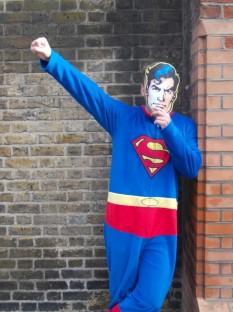
One of the numerous ‘fancy dressed’ Supermans outside a nearby hotel. The costumes that pass by our offices bring humour to FFT staff, in contrast to their work.
In one meeting, I recall saying that there are times when I feel like I don’t want to hear any more about torture for a day. One of our teams shared that they will often go for a walk along the riverside near our offices when they need a break. I often make an espresso and look out of the window at the world passing by, and near our offices there is much to see. Nearby is a hotel where many people, who want to go to parties in our city, will stay and they often wear fancy dress – sometimes I see 10 men dressed as Superman, or in clothing for playing tennis with huge inflatable tennis rackets.
That helps me to see the funny side of this world that isn’t tainted by torture and is a valuable part of putting our work in proportion, as well as encouraging a sense of humour.
The away days have helped us to become a closer, more understanding and more supportive team.
Next week, we have a further such Away Day for the Clinical Team. I’ll ask if I can take some photos for this blog.
By Alan Brice, Centre Manager, North East Centre, Freedom from Torture
UK centre mitigates the impact of working with survivors of torture
Posted by World Without Torture in Europe, From our members on 07/05/2013
Editor’s Note: This is the fourth in a regular series from centres involved in the Peer Support project (more fully described in our earlier blog here). See other previous posts in this series here, here and here.
I work for Freedom from Torture (previously known as the Medical Foundation for the Care of Victims of Torture) as Manager of our centre in the North East of England in Newcastle upon Tyne. We have a big centre in London and others that are smaller around the country in Birmingham, Manchester and Glasgow. More than 50,000 survivors of torture have been helped since we started our work over 25 years ago. We employ about 170 staff (the majority are part-time) and are delighted to have about the same number of volunteers working with us.
We have been developing a training programme for staff on Self Care recently. Tony Wright, who is in my team in the North East Centre, was involved in its design and delivery. Tony is a therapist who also leads training initiatives for us in the North East. The Self Care programme is designed to help staff know more about how working with survivors of torture — hearing their stories, feeling their distress, typing reports documenting torture — impacts on each member of staff. With greater understanding and greater awareness of the damage that can be done to staff, the programme then encourages staff to reflect on how they can be healthier in the work.
When we heard of the Peer Support Project, we were both very interested to be involved. As the Centre Manager, I am also a therapist and am part of the National Clinical Secretariat that oversees clinical issues in the organisation. Taking care of our clients means taking care of each other. If we are not healthy and working to our best we cannot support our clients through the terrible traumas they have experienced. It was a really valuable addition that Celine Conaghan, our Human Resources Manager, was also keen to join the Peer Support project team.
We learned a lot in the week in Barcelona – the trainers worked us pretty hard – and we began to think differently about how to organise ourselves to help each other better. Having the chance to talk with staff in other organisations across Europe was really valuable. It gave us ideas and perspectives that we did not expect. Hearing about the Intervision approach and discussing how others have applied it, made us interested in applying it to our own context.
We did manage to have a little time away from the subject of Peer Support project and many of us went to la Sagrada Família, the amazing church designed by the architect Gaudi. Attached are a couple of photos from our visit there – the light flooding into the building through the stained glass is astonishing.
We noticed a statue near the entrance that was very evocative of the suffering we encounter in our work.
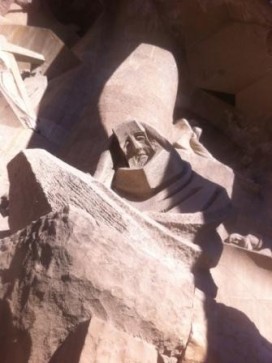
A statue at the entrance of la Sagrada Família, the famous Gaudi cathedral in Barcelona, which reminded the author of the suffering of the clients with which they work. (Photo submitted by Freedom From Torture)
Tony and I found the Foundation of the Catalan artist Antoni Tapies, who was born in Barcelona. One of his pieces of art, a rolled up mattress, reminded us of the experience of many people forced to flee their homes across the world to find safety, food and welcome and who can take just a few items like such a mattress with them.
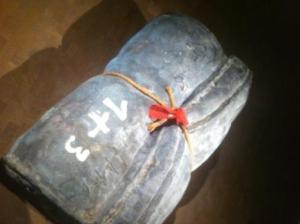
Piece by Catalan artist Antoni Tapies. This reminded the author of the many clients who are forced to flee their homes with only a few items, such as a rolled up mattress as pictured. (Photo submitted by Freedom From Torture)
Back home the three of us have carefully discussed how we can introduce the learning from Barcelona into the work of our organisation. In the North East we have established regular Away Days for the staff team when we can get away from the office and hear each other’s concerns and achievements also. Nationally across the organisation, Celine has sent lots of information around so that staff and volunteers are informed and involved. We want them to be as excited as we are. We are looking forward to the Project Support Visit, which we hope will be in June. During that visit we intend to introduce aspects of Peer Support to the Senior Managers of the organisation and to selected teams. By then Tony will have been on his second additional training on applying Intervision, and we plan to roll out that training across the organisation after that. Next time we blog we will be explaining how our Away Days are working.
By Alan Brice, Centre Manager, North East Centre, Freedom from Torture
No state support, little funding: how Bulgaria centre manages to treat torture victims in trying times
Posted by World Without Torture in Europe, From our members on 22/03/2013
Editor’s Note: This is the second in a regular series from centres involved in the Peer Support project (more fully described in our previous blog here).
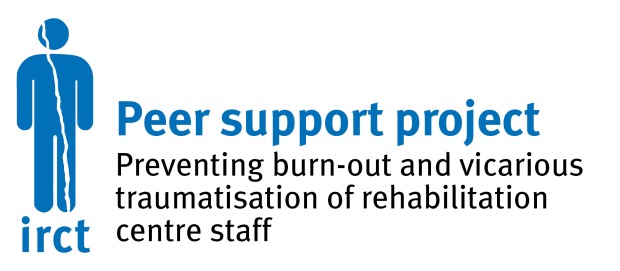 In Bulgaria, the problems of asylum seekers and refugees are not being sufficiently discussed. Yet, the problems of torture victims are even more neglected. The attempts to initiate and sustain a dialogue on this vulnerable group of people with Bulgarian state institutions that deal with asylum seekers and refugees have until now been met with disregard. There is no Bulgarian municipality or state-run institution that provides funding for the support of torture victims.
In Bulgaria, the problems of asylum seekers and refugees are not being sufficiently discussed. Yet, the problems of torture victims are even more neglected. The attempts to initiate and sustain a dialogue on this vulnerable group of people with Bulgarian state institutions that deal with asylum seekers and refugees have until now been met with disregard. There is no Bulgarian municipality or state-run institution that provides funding for the support of torture victims.
This is the environment in which Assistance Centre for Torture Survivors (ACET) — the only Bulgarian organisation that offers services to torture victims — is trying to develop a rehabilitation programme. Over the last couple of years, the team of ACET has gone through serious funding-related challenges and difficulties.
The team of ACET consists of five psychologists, a psychiatrist, a social worker who is responsible for a great part of the administrative work, and three translators. All of them work part-time. Over the last years, since the professionals have started working part-time, the rehabilitation programme of ACET serves just more than 100 people per year and the consultations take place at the office of ACET, at the Reception Center of the State Agency for Refugees, and at the Special Home for Temporary Placement of Foreign Nationals in Busmantsi.
When we learnt about the option to take part in Peer Support project, our team saw an opportunity for support as ACET was not able to provide its team with stress prevention activities. Due to financial difficulties, we had stopped receiving clinical supervision and having the weekly meetings of the team, as most of the consultants could not invest more time than stipulated for meetings with the clients of the rehabilitation programme.
This is why we saw in Peer Support project as an opportunity for overcoming the fragmentation of the team and its gradual marginalisation, and a chance to create a new model to deal with stress. In addition, the exchange of experiences with colleagues from various European rehabilitation centres has always been inspiring for us, and this project has given us such an opportunity.
During the needs assessment visit in November 2012, we already experienced the advantages of our participation in the project. With the help of the Peer Support project team, we managed to identify some important steps towards improving the communication within the organisation and the planning of our activities. We have identified steps for improving the management of the organisation, the delegation and distribution of administrative tasks that — in the context of a restricted budged — should be managed by the clinical specialists. As a result of the Peer Support project team and the offered recommendations, we renewed the weekly meetings of the team.
The training in the method of intervision during our meeting in Barcelona has enabled the decrease of tension among the team members and triggered ideas about how to overcome the accumulated problems. With the help of the intervision technique, we managed to constructively overcome the misunderstandings in the team related to the communication strategy with the still quite unresponsive Bulgarian state institutions that deal with asylum seekers and refugees.
We are now looking forward to ANTARES’ visit in order to gain insights about creating a pre-accession training for everybody who will become part of our team in the years to come.
By Kristina Gologanova, social worker and assistant project coordinator, Assistance Centre for Torture Survivors (ACET)
Reducing stress for care-givers of torture victims
Posted by World Without Torture in Europe, Sharing Knowledge - Project Work on 13/03/2013
Editor’s Note: This is the first in a regular series from centres involved in the Peer Support project (more fully described in our previous blog here).
I am the director of a rehabilitation centre for survivors of torture in Ireland called SPIRASI, and we are a participant on the Peer Support Project.
Last year, SPIRASI helped 600 survivors of torture from 75 different countries. Approximately 90% of those people referred to the centre from physicians and attorneys nationally in Ireland are seeking protection. SPIRASI offers a wide range of rehabilitative interventions including medical assessments, therapeutic treatment, social supports, education and assistance with integration.
SPIRASI decided to get involved in the Peer Support project because we all know that the stress and the very subject that we are dealing with — torture — can and does have a real impact on how we perform in our work, in rehabilitating survivors of torture. It seems that as a result we are mostly in a state of disorder and hyper-sensitivity. In the NGO sector, that is a very difficult admission to make. NGOs are under immense pressure to exude professionalism and success. Donors and other supporters expect very high standards and we compete against a myriad of other organisations for support for our cause.
Last December we gathered with our colleagues from across Europe in Barcelona to look at the outcome of visits we received by the Peer Support Project leaders to examine the impact of stress and to begin to put together strategies for coping.
I found the meeting exceptionally helpful. I was immediately struck by the fact that we were not alone in grappling with the effects of stress and trauma and that we all had remarkably similar problems to deal with and exceptionally busy schedules. The input from ANTARES, a foundation based in the Netherlands who work with international humanitarian organisations to help them address such issues, was excellent. They shared with us a model and tools to help with the development of policies and processes. The model provides a life cycle approach to managing stress with staff, with suggestions at each phase, from screening to post-exit supports. We are hoping to adopt many of the good practice guidelines suggested in this model.
I was also taken with a problem solving model that has been championed by bzfo, a center in Berlin, called Intervision. This model helps people with problems through a process that involves empathising with the problem holder, drawing out salient points and providing solutions.
Already the tools and mechanisms that we are acquiring through the project are helping us to become more effective in our work. For example, since the start of the project, we have begun a re-structuring process in our service provision to draw our therapeutic staff more into the centre of our organisation. This we hope will build greater cohesiveness and aid in better communication. In addition, in light of the discussion on stress, we have looked at decision making in the organisation and have made some important changes by giving more input into decisions to the coordination team and changing our meeting structure.
We are looking forward to the coming follow-up visits and to working more with the Peer Support project team and our European partners.
By Greg Straton, Director SPIRASI
Live from Yaounde: “We are all links in a chain”
Posted by World Without Torture in Sharing Knowledge - Project Work, Sub-Saharan Africa on 12/12/2012
Editor’s Note: Tessa writes from the IRCT’s Sub-Saharan Africa Regional Seminar taking place in Yaounde, Cameroon.
As we’ve mentioned before, work in nongovernmental organisations (NGO – another acronym we use with ease within this little world) can use a particular language and methods that don’t really reflect to the outside world their true meaning and impact. We speak of meetings and projects with an air of great importance, but often struggle to explain why? Why is a meeting, of all things, so important and why do we focus so much on them?
This has been one of the goals of this blog – to shed some light underneath the veil of NGO-ese and the NGO methods to explain clearly, what is the impact of our work.
One the IRCT’s projects, Non-State Actors (NSA) is one such project riddled with this problem of communicating why meetings are so important.
I am writing right now from one of these meetings. I’m in Cameroon at the Sub-Saharan Africa Regional Seminar, co-hosted by the IRCT and our member Trauma Centre Cameroon (TCC). This is my first time to attend one of these meetings, and I firstly feel so privileged to be here and meet so many people within the torture rehabilitation movement; but I also feel like I’m only now beginning to understand the impact of these seminars and meetings.
- Fidelis Mudimu, of CSU Zimbabwe, speaks about protecting human rights defenders.
- The “Secretariat” as we’ve dubbed our office for preparing for the seminar Sunday evening.
- Peter Kumche, (left) director of Trauma Centre Cameroon, joins TCC’s President Peter Essoka during the welcoming to the seminar.
This seminar has brought together 31 representatives – psychologists, counsellors, directors of centres, and social workers – from torture rehabilitation centres from all over sub-Saharan Africa. There are people here from Chad, Nigeria, Zimbabwe, Kenya, Democratic Republic of the Congo, and of course, our gracious hosts and ridiculously hard-working staff of TCC, among others.
The title of this five-day seminar is “Learning from each other.” Our goal in being here is to do just that – learn from each other’s respective experiences in rehabilitating torture survivors, gaining access to justice and preventing torture from happening in the first place.
But our first task was simply to make sure we were all OK. Working for a world without torture in sub-Saharan Africa can be a phenomenally difficult task, as one can imagine from the media. Torture here is undeniably prevalent, whether during military uprisings, former dictatorships, ongoing torture from police officers, or in post-conflict settings. And working for the rehabilitation of torture survivors can be both personally taxing for the individual and intimidating, as we have seen from the threats to human rights defenders around the world.
So, in bringing these 31 individuals together, we tried to address these issues. Presenters from various centres explained their strategies for safety as human rights defenders. Fidelis Mudimu, from Counselling Services Unit (CSU) in Zimbabwe, was among three staff members arbitrarily arrested and detained. He spoke about strategies to assess risks. For example, the greater impact of a centre’s work – bringing forth more perpetrators to account for their crimes, documenting that torture has taken place, empowering victims through rehabilitation – can of course increase the risks that human rights defenders face because they challenge the impunity of perpetrators. Knowing the impact of one’s work can keep that defender aware of when they might provoke a threat.
Taiga Wanyanja, coordinator of Mateso – Mwatikho Torture Survivors Organization in Kenya, spoke about ways in which human rights defenders can mitigate against risks. Keep abreast of not only the context in which one is working, but how it changes. Is there political unrest or upcoming elections, such as the situation in Kenya in 2008 that resulted in many incidents of torture? Make sure the office itself is safe – in a well-lit area and not isolated and easily attacked.
But human rights defenders need to be mentally safe in addition to physically safe. When working in the fight against torture, it is both understandable and a considerable risk that human rights defenders may become traumatised, burned-out or facing other mental health challenges because of the nature of their work. Secondary trauma – trauma that comes from hearing and witnessing the stories of torture and violence all day, everyday – is a problem among those in human rights work, perhaps particularly in anti-torture organisations.
So, back to meetings. What is the purposing of bringing forth all these people from all over the continent to learn these things? Because, as Fidelis said, “We are a chain. And we are only as strong as our weakest link.” It is critically important for the safety – both physical and mental safety – that everyone learns from each other. This is learning from both successes and failures, knowing what works and what doesn’t, in fighting torture within each country, context and community.
 Tessa is Communications Officer at the IRCT. The regional meeting, part of the NSA project, was funded by the European Commission.
Tessa is Communications Officer at the IRCT. The regional meeting, part of the NSA project, was funded by the European Commission.
